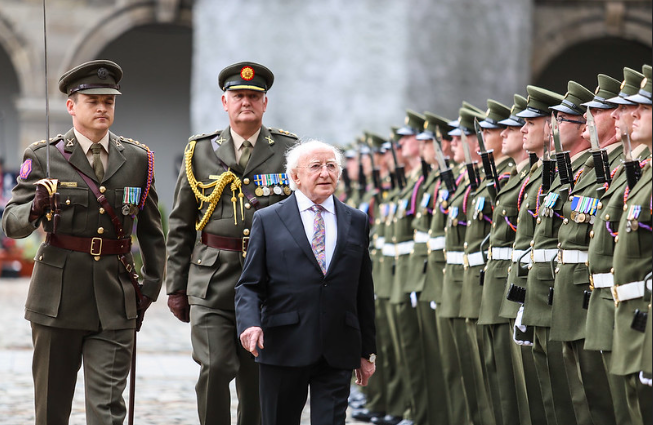The Governments of Ireland, Norway, Slovenia and Spain condemn the approval by the Knesset of legislation to prevent UNRWA from operating in the Occupied Palestinian Territory.
UNRWA has a mandate from the United Nations General Assembly. The work of the Agency is essential and irreplaceable for millions of Palestinian refugees in the region, and particularly in the current context in Gaza. The legislation approved by the Knesset sets a very serious precedent for the work of the United Nations and for all organizations of the multilateral system.
Ireland, Norway, Slovenia and Spain will continue to work with donor and host countries to ensure the viability of UNRWA’s work and its humanitarian role.
In recent weeks, Israel’s parliament has passed a contentious bill aimed at banning funding for the United Nations Relief and Works Agency for Palestine Refugees in the Near East (UNRWA). This decision has sparked significant international backlash, with countries like Ireland expressing serious concerns about its implications for Palestinian refugees and regional stability.
The Implications of the Bill
The Israeli government argues that UNRWA perpetuates the refugee status of Palestinians and is complicit in anti-Israel sentiment. However, critics contend that the agency plays a vital role in providing essential services to millions of Palestinian refugees, including education, healthcare, and food assistance. The proposed ban could disrupt these critical services, exacerbating the humanitarian crisis faced by many in the Palestinian territories.
UNRWA serves over 5 million registered Palestinian refugees across the West Bank, Gaza Strip, Jordan, Lebanon, and Syria. Its programs are fundamental not just for immediate aid but also for long-term stability in a region that has faced decades of conflict.
Ireland’s Stance
Ireland has emerged as a vocal opponent of the Israeli bill. The Irish government, through its Foreign Minister, has condemned the move, emphasizing the importance of international humanitarian law and the necessity of supporting UNRWA’s work. Ireland’s position is grounded in its commitment to human rights and its historical solidarity with the Palestinian people.
The Foreign Minister has stated, “Funding for UNRWA is crucial for maintaining stability and providing essential services to those in need. We cannot turn our backs on the humanitarian principles that guide our actions.” This sentiment reflects a broader commitment among many EU nations to uphold humanitarian assistance as a critical aspect of foreign policy.
Broader International Reaction
Ireland is not alone in its opposition. Other countries and international organizations have also criticized the Israeli government’s decision. The European Union has called for dialogue and a re-evaluation of policies that hinder humanitarian efforts in the region. Human rights organizations have raised alarms about the potential consequences of this funding ban, warning that it could lead to increased suffering among vulnerable populations.
The situation has ignited debates about the role of international aid and the responsibilities of nations to support humanitarian efforts. Many argue that any policies undermining UNRWA’s capacity to function effectively could have dire repercussions for peace initiatives and stability in the Middle East.
The Path Forward
As the international community grapples with the implications of Israel’s decision, discussions around the future of UNRWA and its funding will likely remain at the forefront. The need for sustained humanitarian assistance is clear, but it is also intertwined with political considerations that complicate the landscape.
Ireland’s response underscores a broader commitment to humanitarian principles in foreign policy, advocating for a just resolution to the Palestinian situation. The ongoing dialogue surrounding this issue will be crucial as stakeholders work toward a solution that respects the rights and dignity of Palestinian refugees while promoting long-term peace in the region.
In conclusion, Israel’s move to ban funding for UNRWA has sparked widespread discontent, particularly from countries like Ireland that prioritize humanitarian assistance and the protection of human rights. As the situation unfolds, it is imperative that the international community remains engaged and committed to supporting those in need, emphasizing the necessity of dialogue and cooperation in addressing one of the world’s most protracted humanitarian crises.



